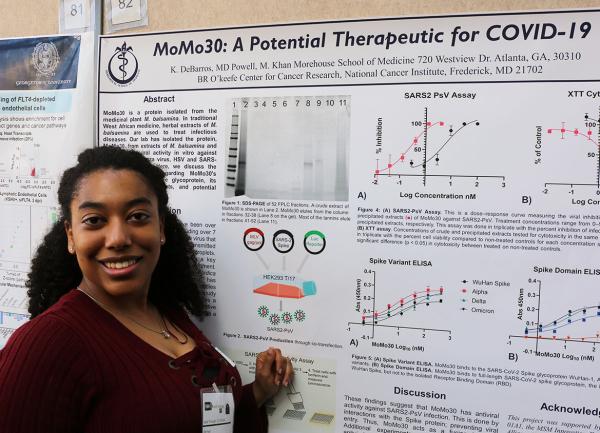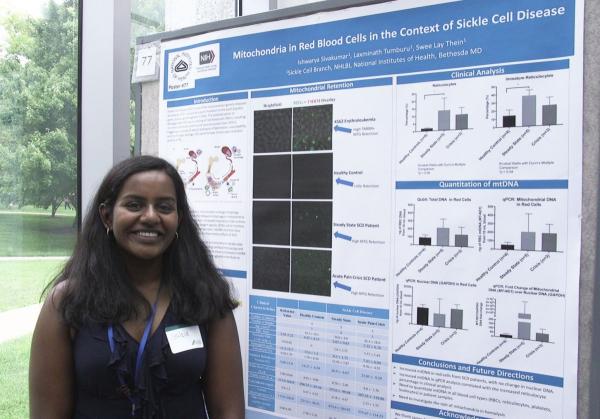IRP Scientists Sound Off in Three-Minute Talks
Annual Competition Tests Researchers’ Communication Skills
Many scientists say that English is the international language of science, but if it is, it’s a form of English that many fluent English speakers might have trouble understanding. From ‘allosteric modulator’ to ‘zinc finger nuclease,’ the words that scientists use to talk about what they do can sound like a foreign language.
Fortunately, many current and upcoming scientists are making it a priority to learn how to communicate with people who don’t share their deep knowledge. As part of this effort, NIH’s annual Three-Minute Talks (TmT) competition brings forth dozens of IRP postbacs, graduate students, and postdocs to talk about their research to an audience of peers outside their own labs. On June 27, this year’s 11 finalists delivered clear, engaging, and — most importantly — short talks on topics ranging from skin bacteria to saliva.





